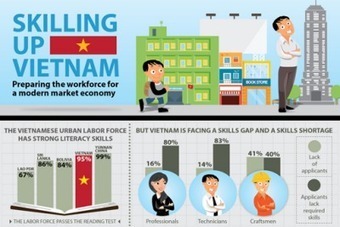KEY INSIGHT #1
To reap the benefits that AI has to offer, its adoption and deployment should be a collaborative and inclusive process that recognizes and addresses genuine concerns individuals have about AI and technology more broadly. FSC projects have shown that such an approach can lead to demonstrable gains in efficiency and well-being.
KEY INSIGHT #2
The absence of an inclusive AI deployment strategy and disregard for its inherent biases risk exacerbating existing inequities.
KEY INSIGHT #3
FSC-supported AI tools have bolstered outcomes in skills matching, career development guidance, and recruitment. The overall effectiveness of these tools was underpinned by recognizing and mitigating the inherent bias and discrimination embedded into these technologies.
KEY INSIGHT #4
Given the breadth of AI’s impact on the world of work, AI skills will become increasingly relevant. FSC and others are making efforts to strengthen basic AI skills and this should form a core component of digital literacy going forward.
Research and publish the best content.
Get Started for FREE
Sign up with Facebook Sign up with X
I don't have a Facebook or a X account
Already have an account: Login
Compilation of information related to vocational training in English
 Your new post is loading... Your new post is loading...
 Your new post is loading... Your new post is loading...
No comment yet.
Sign up to comment
unigol's curator insight,
February 22, 2022 7:28 AM
https://mikabirdsfarm.co.uk/product/african-grey-parrot/ https://mikabirdsfarm.co.uk/product/cockatoo-for-sale-uk/ https://mikabirdsfarm.co.uk/product/african-grey-parrot/ https://jungleboysfarm.org/product/banana-punch/ https://jungleboysfarm.org/product/jungle-mints/ https://mikabirdsfarm.co.uk/product/african-grey-parrot/ https://mikabirdsfarm.co.uk/product/cockatoo-for-sale-uk/ https://mikabirdsfarm.co.uk/product/african-grey-parrot/ |
|






















